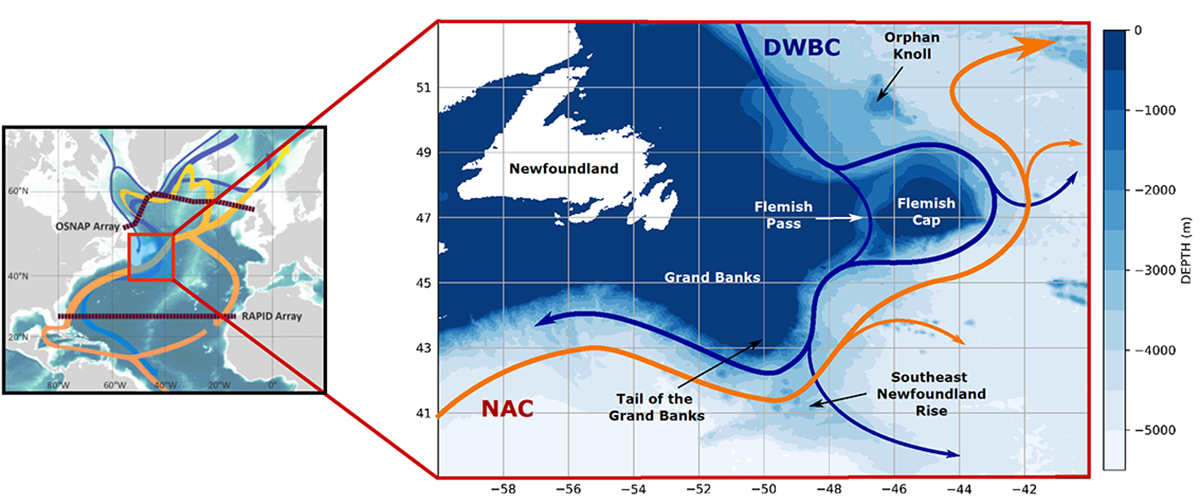EPOC researchers pay a return visit to Grand Banks and Flemish Cap
August 2024 sees EPOC researchers returning to the Grand Banks and Flemish Cap region to continue their data gathering mission in this oceanographically complex area off Newfoundland in the NW Atlantic.
In collaboration with the CROSSROAD project, this 4-week expedition aims to collect data that will help decipher the dynamics of the North Atlantic Transition Zone (TZ). The team on board the research vessel N/O Thalassa, led by Ifremer’s Damien Desbruyères, will collect measurements of water mass properties (temperature, salinity, oxygen), currents and turbulence. In addition, 2 classic Argo floats, 12 Deep Argo floats and 3 biogeochemical floats will be deployed, as well as a microstructure mooring system. These new data will complement the information being collected by the moored instruments that were deployed by EPOC in the same area in 2023, and which will continue to measure ocean currents until 2025.
The North Atlantic Transition Zone separates the subpolar and subtropical basins of the Atlantic and is marked by the underwater plateau of Flemish Cap and Grand Banks. The plateau forms a physical obstacle to the southward movement of the Deep Western Boundary Current (DWBC) along the western side of the Atlantic – a deep ocean current that moves cold and oxygenated waters from the subpolar region southward towards the tropics and is a component of the larger-scale Atlantic Meridional Overturning Circulation (AMOC). The interaction of the DWBC with the Flemish Cap-Grand Banks plateau and strong surface currents transporting warm waters northward disrupts its southerly flow and creates complex turbulent motions that mix different water masses at a range of depths and scales.

Existing observations and measurements of ocean dynamics around Grand Banks and Flemish Cap are only just beginning to reveal the highly complicated nature of this system, which plays an important role in the movement of heat around the North Atlantic and therefore has a strong influence on regional climate. This latest mission aims to expand the data from the region and will feed into very high-resolution regional numerical modelling of both the large- and fine-scale processes affecting the North Atlantic Deep Water, which in turn contributes to better understanding of the basin-scale AMOC and its role in Earth’s climate.
Further details about this mission are available on the EPOC expeditions page.
About the CROSSROAD project
EPOC is collaborating with the CROSSROAD project on this expedition. The goal of the CROSSROAD project is to use novel observational and numerical tools to provide a process-oriented assessment of NADW motions and transformation across choke points and to study their impacts on climate-relevant metrics. For more details see http://crossroad.ifremer.fr

